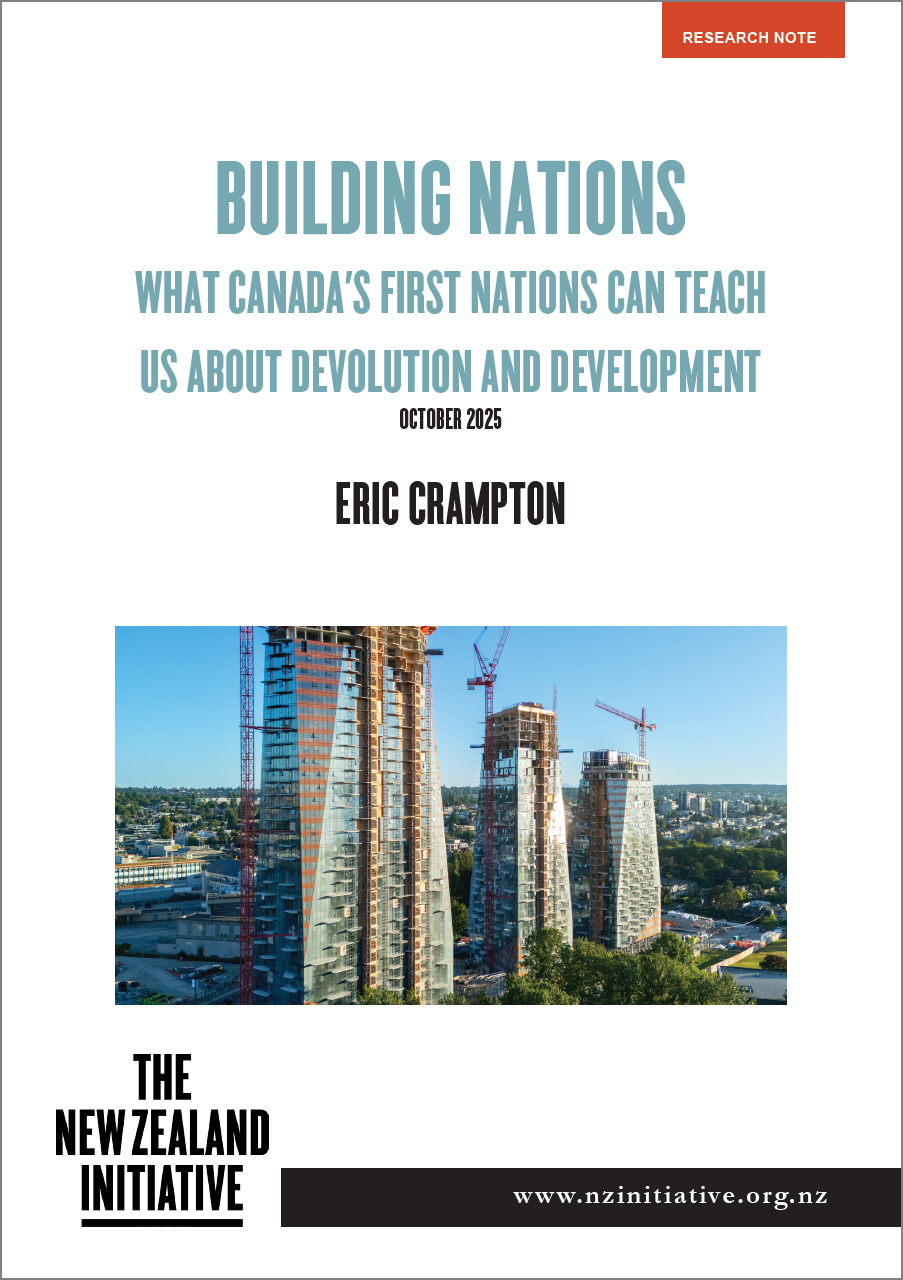Canadian First Nations are helping tackle Canada’s housing crisis through council-like authority over their own land. Our new report highlights this proven Canadian turnaround success story and draws lessons for New Zealand.
The research note, Building Nations: What Canada’s First Nations can teach us about devolution and development, details how Canadian First Nations have transformed their economic fortunes. They have built thousands of new homes after gaining powers for planning, zoning, tax, and infrastructure finance.
“In New Zealand, moving a water tank on the marae can require council consent. Meanwhile, the Squamish are building apartment towers on their own land on their own authority,” said Dr Eric Crampton, author of the report and Chief Economist at The New Zealand Initiative.
“When you empower local communities with the tools to make their own decisions on their own land, they build the homes and create the jobs. Everyone benefits.”
The report highlights a stunning turnaround story that has been decades in the making.
The Squamish Nation’s 6,000-apartment development in downtown Vancouver is helping to solve the city’s housing crisis on its own terms.
An hour away from Vancouver, near Chilliwack, the Ch’íyáqtel (Tzeachten), has built over 1,600 homes. It has reversed its economic position from 90% reliance on government funding to 90% own-source revenue.
Canada’s turnaround story started small. A Reserve near Kamloops, BC, wanted to try a different approach. As it succeeded, it helped build national support bodies so others could follow: a Tax Commission, a Finance Authority for infrastructure capital and a Lands Advisory Board.
“The Canadian path to autonomy was gradual, starting with one First Nation rather than a nationwide approach,” said Dr Crampton. “New Zealand could learn from this. Enabling small, devolved approaches, learning what works, and building a pathway for others to follow seems worth trying.”
The report stresses this is not a free ride. It is a system built on strict accountability that helps build capabilities. It creates a more level playing field for development, not special treatment.
The Initiative’s report argues that this incremental, opt-in approach could provide a practical path to realising a form of tino rangatiratanga, through local devolution, while delivering real benefits for all New Zealanders.
Dr Eric Crampton also discusses his research note with Dr Oliver Hartwich on our podcast. Listen below.





